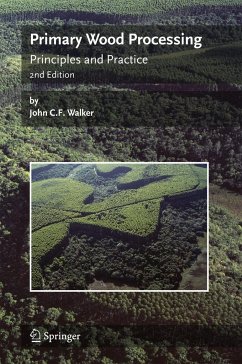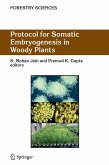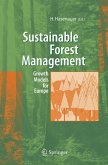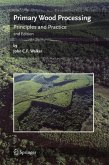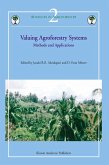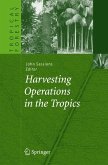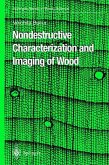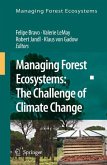This revised book is primarily a general text covering the whole sweep of the forest industries. It has no competitors with regard to its philosophical approach to the subject, and it is the only book covering the subject in a way comprehensible for the generalist.
Samuel Johnson (of Boswell fame) said about writing, 'whatever is written without effort is in general read without pleasure' and 'the unexamined word is not worth reading.' However, even the most thoughtfully written text is unlikely to be described as a good read. This book is not an exhaustive review. Rather it is an uneven selection of examples whose interplay across disciplines hopefully illuminates what drives the practice of forest production, wood processing and consumer preferences. The choice of material is arbitrary reflecting personal biases. It is a summary of material presented to students at the NZ School of Forestry at the University of Canterbury. This book takes liberties with other peoples' ideas, weaving them into fresh themes that are at best a work in progress. The philosopher Francis Bacon argued that 'science is a debate in progress not a body of knowledge' and also 'truth emerges more readily from error than confusion'. We have taken the position that it is preferable to venture a reasoned opinion and be proved wrong than to waffle; so don't swallow every sentence - 'doubt everything'. The reader's task is to unravel the conceits of generalizing and the risks of particularizing.
Hinweis: Dieser Artikel kann nur an eine deutsche Lieferadresse ausgeliefert werden.
Samuel Johnson (of Boswell fame) said about writing, 'whatever is written without effort is in general read without pleasure' and 'the unexamined word is not worth reading.' However, even the most thoughtfully written text is unlikely to be described as a good read. This book is not an exhaustive review. Rather it is an uneven selection of examples whose interplay across disciplines hopefully illuminates what drives the practice of forest production, wood processing and consumer preferences. The choice of material is arbitrary reflecting personal biases. It is a summary of material presented to students at the NZ School of Forestry at the University of Canterbury. This book takes liberties with other peoples' ideas, weaving them into fresh themes that are at best a work in progress. The philosopher Francis Bacon argued that 'science is a debate in progress not a body of knowledge' and also 'truth emerges more readily from error than confusion'. We have taken the position that it is preferable to venture a reasoned opinion and be proved wrong than to waffle; so don't swallow every sentence - 'doubt everything'. The reader's task is to unravel the conceits of generalizing and the risks of particularizing.
Hinweis: Dieser Artikel kann nur an eine deutsche Lieferadresse ausgeliefert werden.
Aus den Rezensionen zur 2. Auflage: "... Das Buch ... gibt einen sehr interessanten Überblick zu Struktur, Eigenschaften und Verwendung von Holz. Es ist dem Autor gelungen, in sehr kompakter Form ein gut lesbares Werk vorzulegen ... Es ist ... in sehr anschaulicher Form umfassend zusammengestellt. ... Insbesondere im Bereich der Grundlagen gelang es, das aktuelle Wissen ... sehr gut und dicht zusammenzustellen. ... zahlreiche neue Arbeiten ... ergänzen ... hervorragend die meist älteren Untersuchungen ... Die anwendungsorientierten Kapitel ... sind eher als erster Überblick für den Einsteiger oder den Studierenden der forstlichen Fachrichtungen ... sehr gut geeignet." (Peter Niemz, in: Schweizerische Zeitschrift für Forstwesen, 2007, Vol. 158, Issue 3-4, S. 80)

